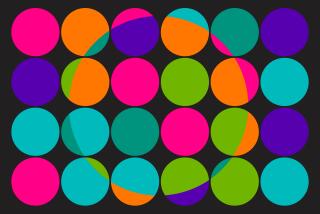Depression treatment: Better but still not great
- Share via
Depression affects 1 in 6 Americans in the course of his or her lifetime. And while antidepressant medications have seemingly revolutionized treatment, making the depressed well again is a largely hit-or-miss proposition. A review of advances in depression treatment published in the Lancet this week acknowledges the limitations of current treatment, but looks ahead hopefully to several new therapies -- among them, deep-brain stimulation.
“In actual practice, most patients need several sequential treatment steps to achieve remission,” said the authors of the Lancet “seminar,” all from the University of Pittsburgh’s Western Psychiatric Institute and Clinic. More than 3 in 10 depressed patients who seek treatment are unlikely to see their depression lift completely after trying several courses of antidepressants.
“No fully satisfactory treatments for major depression are available,” the authors concluded.
The authors noted that as researchers uncover some of the things that go wrong in a depressed person’s brain, better diagnosis and potentially better treatments will emerge. Among the possibilities: genetic tests that can help predict how well a patient will respond to the plethora of antidepressant medications available; brain imaging techniques that might help diagnose depression and shed light on how it works; new evidence that some psychotherapy can be effective even when delivered via telephone and the Internet; and two potential new “rescue drugs” -- ketamine and ademetionine (also known as SAMe) -- that appear to bring about short-term remission at least of depression that has failed to yield to standard drugs and psychotherapy.
Transcranial magnetic brain stimulation -- already approved by the FDA as a treatment for depression -- and deep-brain stimulation -- not yet approved, but for which research evidence is accumulating -- also appear promising, the authors wrote. But as regulators and psychiatrists deepen their understanding of deep-brain stimulaton, the authors warned, they should be attentive to the possibility it could increase patients’ risk for suicide.






